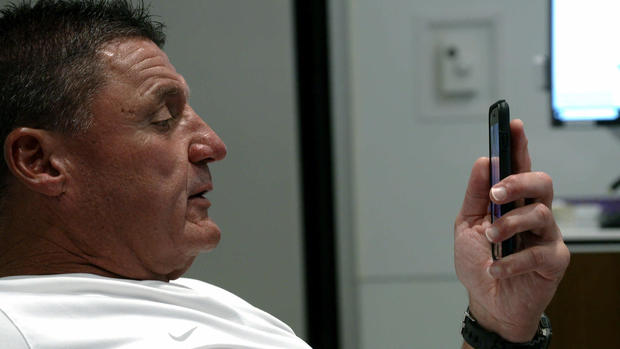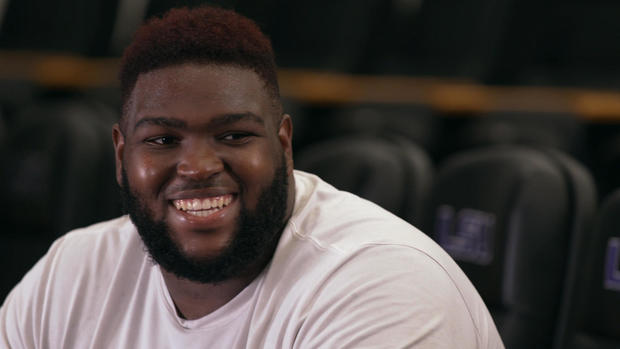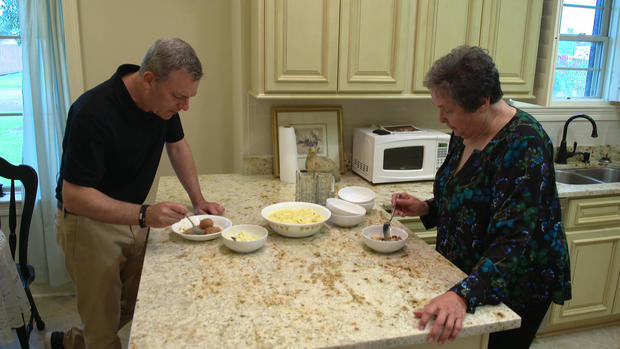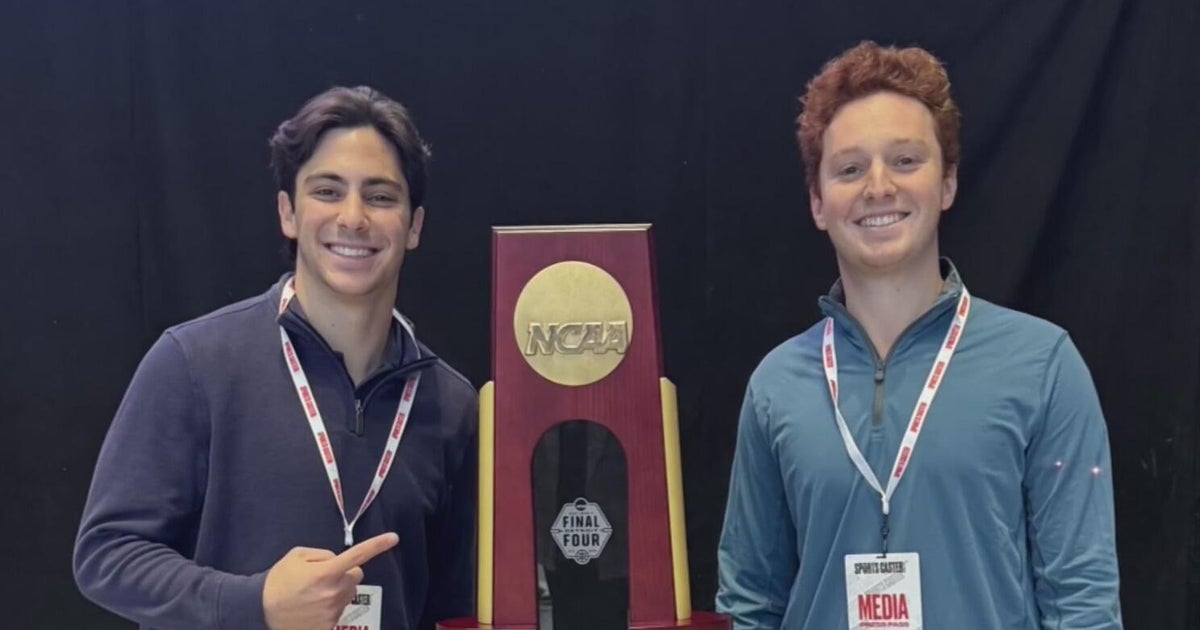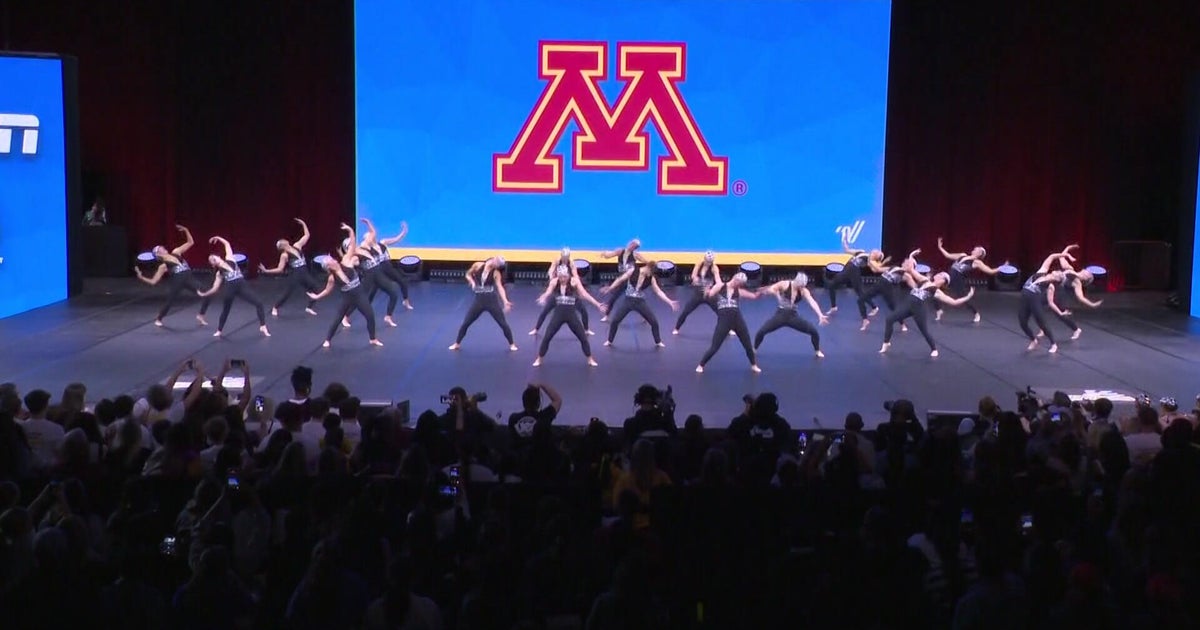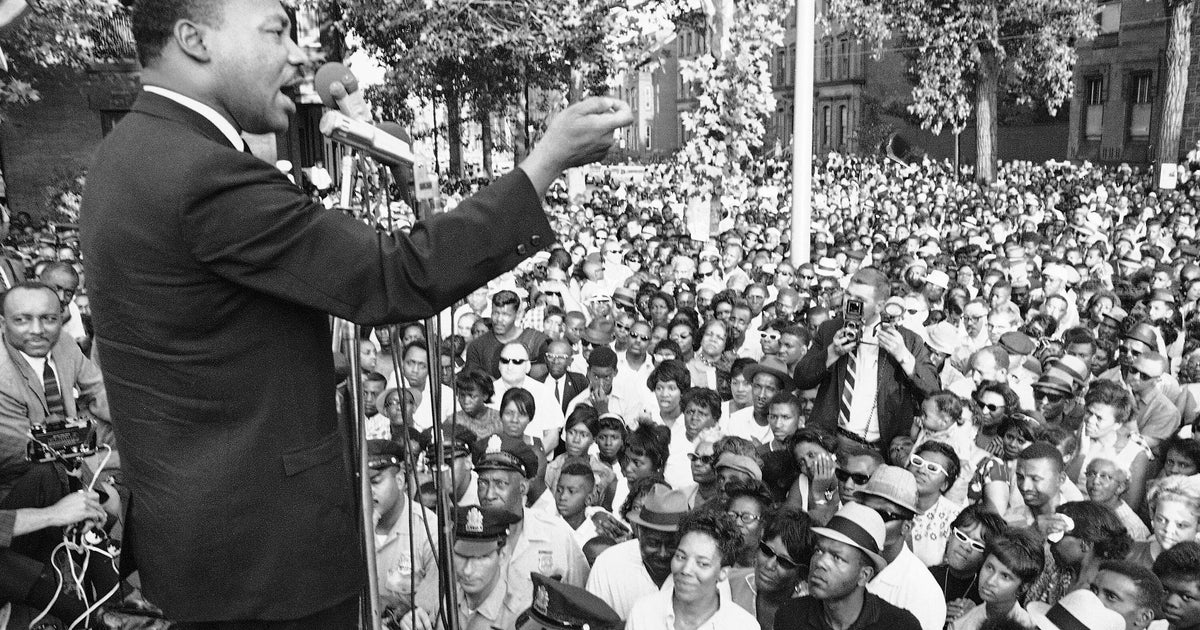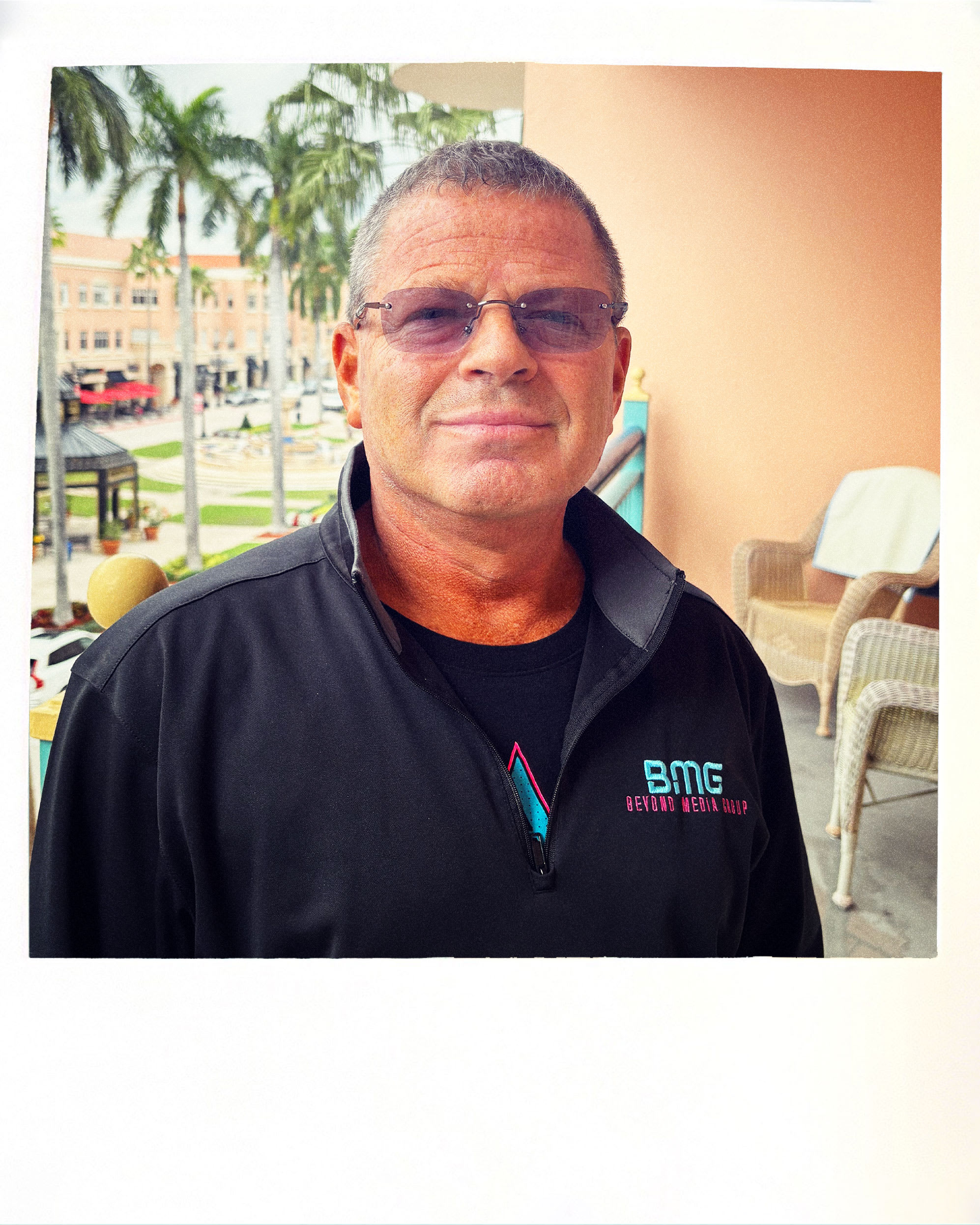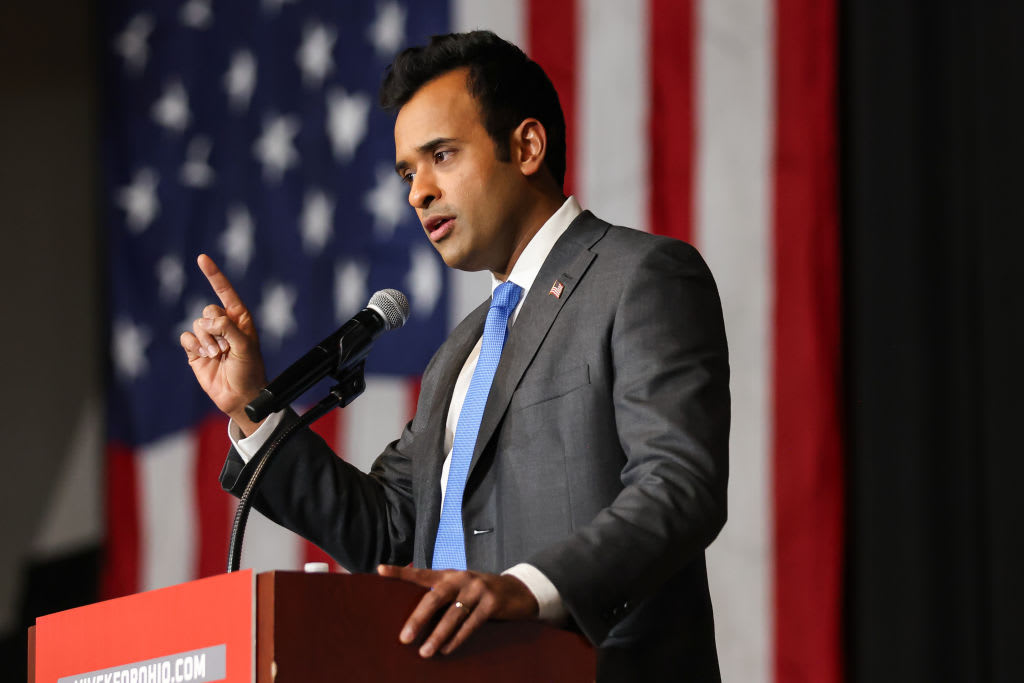LSU Football Coach Ed Orgeron's journey from the bayou to defending a national championship in the time of COVID
When Ed Orgeron was named head football coach of the Louisiana State Tigers in 2016, the local joke went like this: "It's about time the job went to someone who didn't speak with an accent." See, Orgeron is a native Cajun with a perpetually hoarse voice; born on the bayou, not far from Baton Rouge. Coach O, as he's known, struck a chord with the LSU fan base, first with his flavor and familiarity, and then by winning. The Tigers are the reigning national champions. Now comes the real challenge: defending a title amid a global pandemic. College football is in existential crisis. Just this week, when the season would normally be well underway, major conferences were still debating whether and how to stage football this fall. A member of the Southeastern Conference-LSU forges ahead. As the team deals with COVID protocols and shifting lineups, we found Orgeron making the most of this new reality.
Five days a week, for one frenzied hour, Ed Orgeron works the phones inside the War Room of LSU's football facility. The pandemic prevents top high school prospects from visiting campus, but teams can now call recruits as often as they like.
And Orgeron likes to call them a lot.
Ed Orgeron during phone call with recruit: How's your mama doin'?
This is a coach who made his name as much for his recruiting savvy as for his X's and O's.
Ed Orgeron during phone call with recruit: And then you gonna come play for LSU right?
Recruit: Hopefully, yes sir.
Ed Orgeron: What you mean hopefully?
This sports version of speed dating: at LSU it's known as "Power Hour."
Ed Orgeron during phone call with recruit: All right, you know we love you.
Jon Wertheim: What's power hour? (LAUGH) You're laughing.
Ed Orgeron: I love power hour, man. You know, it's a lot of energy. Man, and those phones are blowin' up, and I get to talk-- the other day, we-- in 30 minutes we talked to 31 recruits.
Jon Wertheim: Why is it important?
Ed Orgeron: You know, it's constant contact with these young people nowadays. Before you could call 'em once a week, but if you don't call 'em every day, if you don't text 'em every day, you don't send 'em a message every day, sometimes two or three times a day, they'll think you f-- you forgot them.
Jon Wertheim: If someone says no? What's your-- what's your play--
Ed Orgeron: I'm gonna find a way. No, not today. But I'm gonna find a way.
Jon Wertheim: You're gonna get that kid to LSU?
Ed Orgeron: He's gonna have to tell me no about a thousand times. One time ain't enough.
You might call 2019, the "Year of Yes" for Louisiana State. The Tigers capped an undefeated season by winning the national championship. Their quarterback, Joe Burrow, won the Heisman trophy; another Tiger took home the award for best receiver - that's Ja'Marr Chase. In April, NFL teams drafted 14 players from LSU, tying a modern record for one school. But for all the talent coursing through Baton Rouge, the sun here rises and sets with Coach O. He didn't get much of a victory lap, unless you count 5 a.m. rides to work, radio blaring. Two months after LSU's gilded season, COVID hit and Orgeron was coming to work alone.
We were invited inside LSU football for a few days in August, when Louisiana had one of the highest COVID rates in the country.
Players were back in the gym, but they weren't training in a bubble. Everyone here goes home at night. The team tracks players' temperatures, administers regular COVID tests, isolates those who test positive and quarantines anyone who comes into contact with the virus.
LSU hasn't disclosed figures, but Orgeron said this week most of his players have had COVID.
Jon Wertheim: How much of your day to day is devoted to this virus?
Ed Orgeron: What we do, we have a protocol here. And I follow it. Whatever it is they tell me to do, I do, and then I coach. And I really, my TV hasn't been on for six weeks now.
Jon Wertheim: Why's that?
Ed Orgeron: I know there's a lot of stuff goin' on out there. And, look, I understand. And but for right now, my job is to coach this football team.
Jon Wertheim: And you've been outspoken. You want there to be football this fall--
Ed Orgeron: Yes, yes. I think football is good for everybody. I've seen them practice, and not get sick. I've seen them get sick. Last a couple of days, and come back. You know, they have their ten-day quarantine. But I ask them, "How sick were you?" Said, "Coach, I had a little cough." So I think that the young players, when they do get sick, get over it quick.
Jon Wertheim: Have you come to grips with the idea that there might not be football this fall?
Ed Orgeron: Yeah, I don't let it enter my mind.
Jon Wertheim: Don't even think about it.
Ed Orgeron: No. But I know it could happen. I know at LSU, we've prepared these guys to play, we didn't blink. We're ready.
Even in these first practices, the coach insisted on intensity.
Jon Wertheim: We watched things get a little heated out there the other day no balls, no helmets, no pads--
Ed Orgeron: Yeah, yeah. Doesn't matter if you don't have no pads. But you can have energy.
Jon Wertheim: I notice you use the word energy a lot.
Ed Orgeron: Yes.
Jon Wertheim: It's important to you.
Ed Orgeron: Yes.
Jon Wertheim: Why?
Ed Orgeron: Yeah. I hate quiet. I-- if it's quiet, it ain't good to me.
There's no quiet in his schedule, after a 14-hour day, we trailed him to a local boxing gym. Orgeron manages to conform to every cliche about a football coach and at the same time smash the mold. For starters, there's his voice. Orgeron sounds like a man who gargles crawfish shells and garnishes that rasp with a Cajun accent.
We put the obvious question to Tyler Shelvin, a defensive lineman.
Jon Wertheim: That voice. (LAUGH) You always understand what he's saying?
Tyler Shelvin: Yes, sir. I-- I actually can understand it, 'cause I'm a Louisiana guy.
Jon Wertheim: Anyone imitate his voice on the team?
Tyler Shelvin: Everybody does.
Jon Wertheim: You do it?
Tyler Shelvin: Let's see. Hey, Big T.
Jon Wertheim: You're Big T?
Tyler Shelvin: Yeah, I'm Big T.
Ed Orgeron to Tyler Shelvin: Big T-- Who was the first one to offer you a scholarship?
Tyler Shelvin: Coach O.
Jon Wertheim: You always had that distinct voice?
Ed Orgeron: You know, I think it's grown throughout the years. A lot of time when it gets gravelly, 'cause it gets wore out. But I think that it's something that I use as a tool. It's loud, and it's demanding. You can take control.
Years of coaching forged that rasp, but Orgeron's accent was born in Lafourche Parish, about 75 miles down the bayou from Baton Rouge. The Orgerons are Cajun, descended from French Canadians who were exiled to Louisiana's swamps in the 1700s, and have, proudly, resisted assimilation ever since.
When we stopped by, Coach O's mother Coco insisted we eat before we talk. And, really, who were we to resist seafood gumbo?
Jon Wertheim: This is absolutely delicious.
Coco Orgeron: Thank you. I appreciate that.
The family lived to play football. The late Ed Orgeron Sr. would coach the local kids on a field across from their house.
Coco Orgeron: Oh, that was the playground of the whole neighborhood. The ditch was the 50 yard-line and the sideline was a hedge. And every once in a while, if you'd go up the sideline, you were in the hedges.
Her son stood 6'2" and 270 pounds by the time he was 15, a star player on both offense and defense in high school. The South Lafourche Tarpons were the 1977 Louisiana State Champions. But Saturdays were all about college football.
Jon Wertheim: What did LSU football mean to this family?
Coco Orgeron: It was a big part of our family but it wasn't something we could go and go to the game.
Jon Wertheim: Why not?
Coco Orgeron: We could not afford these-- you know, that was an outing. It was expen-- you couldn't get a ticket even.
When his son asked for tickets to an LSU game, Ed Orgeron Sr. delivered the ultimate pep talk.
Ed Orgeron: He said, "Son, we can't afford that. But let me tell you somethin'. If you keep on working, you won't need a ticket to get into Tiger Stadium."
Orgeron did get in. LSU gave him a football scholarship, but homesick and overwhelmed by the big campus, he quit after two weeks, and hightailed it back to the bayou.
Ed Orgeron: And the next day my daddy woke me up at 6:00 in the morning and said, "Let's go, we're going to work," I was diggin' ditches. And people would pass us on the side of the road, "You quitter." "You couldn't take it." It was the worst day of my life. But my father just looked at me and said, "Dig."
He'd dig his way back to Baton Rouge, of course, but it took him 35 years to go those 75 miles. First he transferred to play for Northwestern State and then, after graduation, took volunteer coaching jobs while moonlighting in the hull of a shrimp boat.
Ed Orgeron: And I'll never forget, man, we shoveled shrimp from 5:00 in the mornin' till 10:00 at night. I had a shovel in my hand. And the phone rang. And he goes, "Hey, man, they have an assistant strength coach job at Arkansas. Do you want it?" I went, "Hold on." I took the shrimp shovel-- shoomp. I threw it in the bayou. And I said, "Hell yeah." He said, "Okay, man. You gotta be here by Monday." I said, "I got one question for you." He said, "What?" I said, "Where the hell is Arkansas, man?
He spent the next quarter-century pinballing around the college football landscape, resigning from Miami while he struggled with alcoholism. Sober he says for 20 years, Orgeron has still been dealt his share of blows by the profession. In 2013, despite his success as an interim coach for USC, he was denied the full-time job.
Jon Wertheim: You want to hear that story I heard?
Ed Orgeron: What is that?
Jon Wertheim: Players loved you. The fans loved you. The coaches loved you. And the high-up said, "We-- we need the kind of guy who's got golf clubs in his trunk."
Ed Orgeron: Exactly right. Now, I c-- I'm not a country club guy.
Jon Wertheim: You think where you're from, even your-- your accent--
Ed Orgeron: Yes.
Jon Wertheim: --influenced that decision?
Ed Orgeron: For sure. No question.
Jon Wertheim: What are some of the stereotypes or misconceptions people might have about Cajun population?
Ed Orgeron: Dumb. Not worthy. Not worldly.
Now back home in Louisiana, Coach O isn't just understood, he's appreciated. Orgeron was hired as an LSU assistant in 2015 and promoted to head coach the following year, earning an annual salary that's now swelled to $7 million. And Orgeron cemented his status when the Tigers beat rival Alabama for the first time in eight years, delighting fans, one in particular.
Jon Wertheim: What do you remember about LSU beating Alabama last year?
Coco Orgeron: You know, I love their stadium. I don't care for what the people say. They're kinda loud and boisterous. But when we won, I enjoyed the living hell out of it. (LAUGH)
Jon Wertheim: I'm getting a sense of what it must be like to sit on that couch and watch a game with you.
Coco Orgeron: Come on down. (LAUGHTER)
And yet for all the earmarks of a fairy tale, the story is not entirely tidy. Within days of our visit, USA Today reported that, in 2016, an LSU player allegedly sexually assaulted two classmates. Orgeron was then an assistant coach at the school. He told us he didn't know about the alleged assault.
More broadly: Orgeron helms a top program at a time when the ethics of big-money college sports are being challenged. Some powerhouse football programs make in excess of $100 million in annual revenue, mostly from giant television rights contracts.
The incentive for schools to salvage this season and play through the pandemic is clear. The incentive for players is less clear.
Jon Wertheim: These players are-- they're unpaid, they're young, they don't have a union. They're bear-hugging the other guy. You think you're asking too much of them?
Ed Orgeron: No, I don't think so. I-- I really don't. I don't think so. And look, let me tell you something about that unpaid stuff and everything. When you sign, you get-- just like I did-- you get an opportunity in life.
Jon Wertheim: A lot of money coming into this program, but these kids are getting an opportunity?
Ed Orgeron: They're gettin' an education. They're gonna network. a lot of our guys are goin'-- goin' into the NFL and makin' a lot of money. But that's just the steps that they've got to take.
But some players have decided risk outweighs opportunity. Remember Ja'Marr Chase, the award-winning wide receiver, and Tyler Shelvin, the lineman? Within weeks of our visit, both decided not to play this sideways season and instead look ahead to the 2021 NFL draft.
With kickoff one week away, SEC teams will bump up COVID testing to three times a week; players who test positive will have to pass cardiac evaluations before they can return to play. Attendance at LSU games will be capped at 25 percent or 25,000 fans and, just as crucially, no tailgating.
On the day we left town, Orgeron let us inside Tiger Stadium, just as his father predicted: no ticket required.
Ed Orgeron: Welcome to Death Valley, where opponents' dreams come to die...
They say opponents' dreams die on this field. As for the homegrown coach's dreams of playing college football as usual here this fall -- well, those may be fragile too.
Produced by Nathalie Sommer. Associate producer, Kaylee Tully. Broadcast associates, Annabelle Hanflig and Elizabeth Germino. Edited by Peter M. Berman.
LSU belongs to the SEC, the college football conference whose games are broadcast on CBS.
